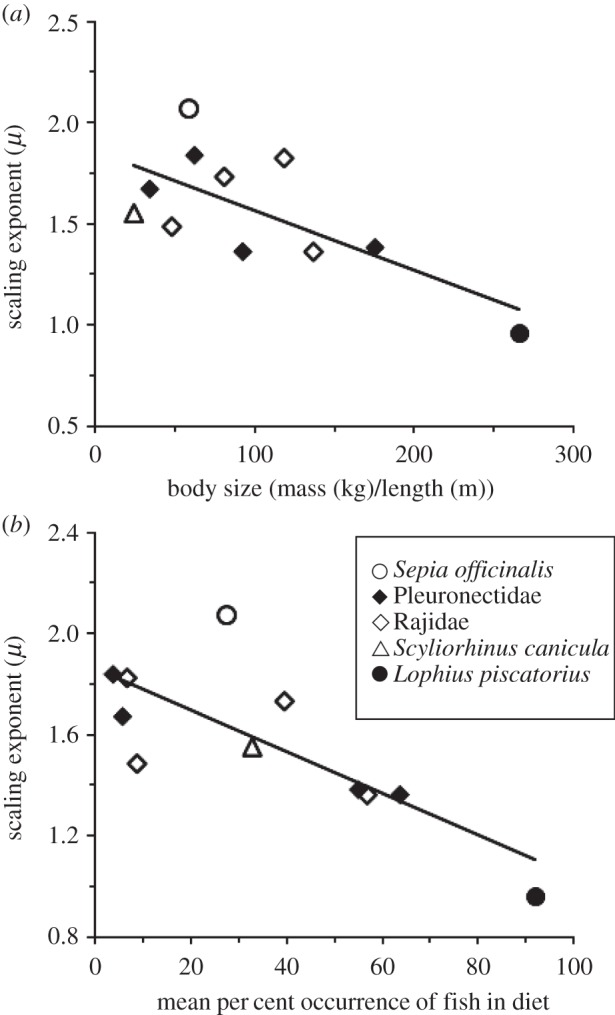Figure 3.

Non-universality in scaling exponents predicted by traits linked to state. Relationships between species mean scaling exponent and (a) predator maximum body mass/maximum body length (a proxy for total energy reserves) and (b) predator's specialization on active prey (mean frequency of occurrence of fish prey in its diet). A multiple linear regression model with exponent as the response variable and predator body mass/body length and percentage fish in diet as predictor variables accounted for 63% of the variation in the response (r2 = 0.63; ANOVA, F2,8 = 6.81, p = 0.019). Considering only fish data improved the model fit, with predictors accounting for 77% of response variation (r2 = 0.77; ANOVA, F2,7 = 11.55, p = 0.006); see the electronic supplementary material.
